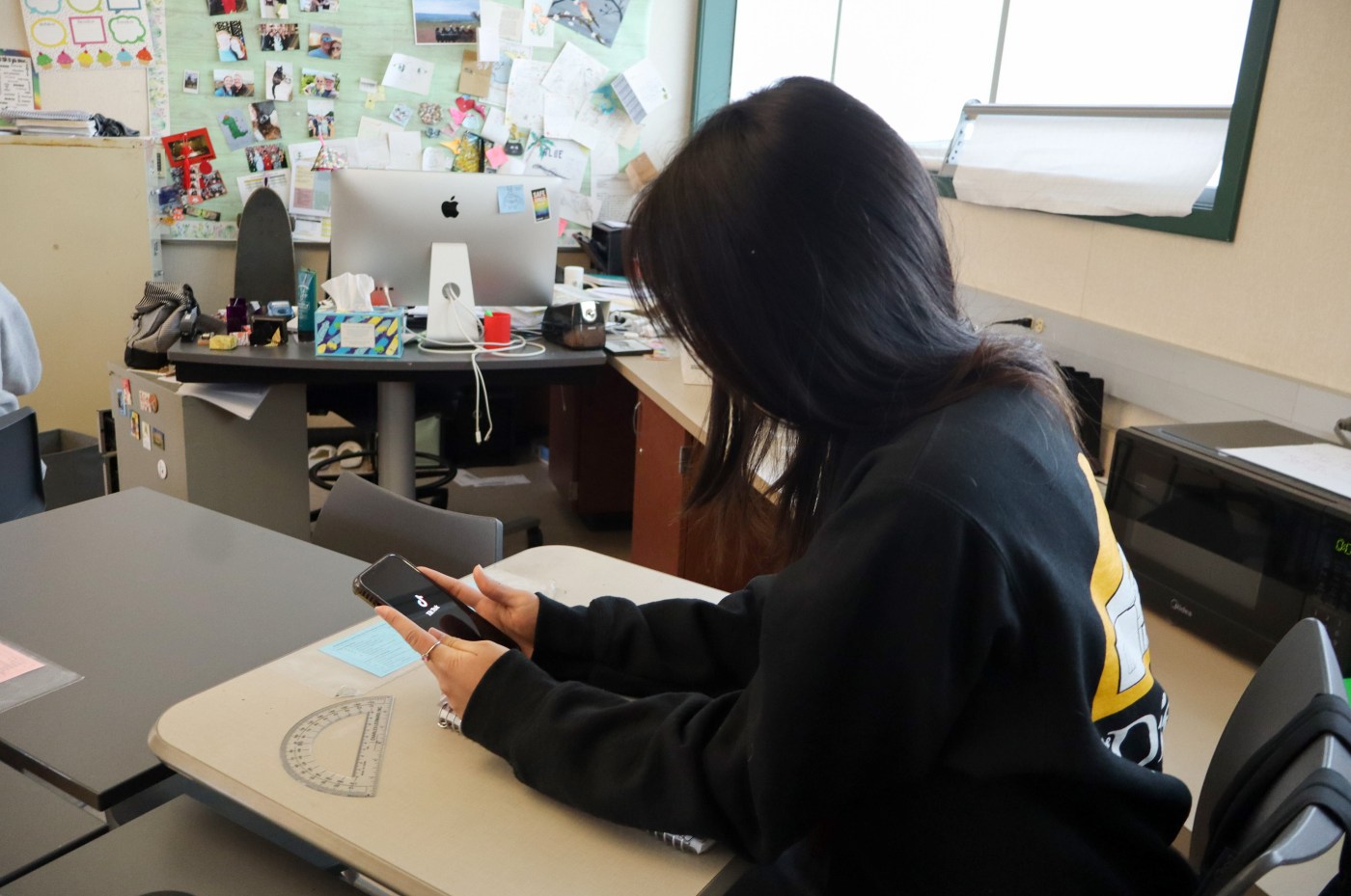
TikTok’s teen users ponder what’s next for the app
Editor’s Note: This article was written for Mosaic, an independent journalism training program for high school students who report and photograph stories under the guidance of professional journalists.
With the fate of TikTok in limbo, South Bay Area youth who have been dedicated users of the video-sharing social media app are pondering their next step. Some plan to stick with TikTok for the time being, while others are looking elsewhere — for example, RedNote, another Chinese-owned company, which has mostly been used in China.
Sam Nunes, 17, Willow Glen High School said she had a habit of being on TikTok “three to four hours a day.” When the Supreme Court on Jan. 17 upheld a ban on the app, causing it to temporarily go dark, she downloaded RedNote. But she felt it lacked the unique, personalized algorithm TikTok provides.
She added that if RedNote were her only option for a replacement, she probably would lose interest in the app.
Others expressed different reservations about RedNote. Anakin Russamevipanont, 17, Del Mar High School said he doesn’t feel comfortable using it because of its ownership, fearing the Chinese government “gaining full control of what I’m doing” online.
He cited concerns about the app’s boilerplate language being in Mandarin. “I wouldn’t know the terms or conditions or anything like that.”
His concerns are not unique. Questions have arisen about the fate of RedNote in the U.S., since its Chinese ownership could cause issues similar to those of TikTok. The issues with the latter stemmed from supposed national security risks, which ultimately led to the Supreme Court decision. On the day of his inauguration, President Donald Trump signed an executive order to delay the ban for 75 days. What happens after that is up in the air.
For casual TikTok users, a ban may not have that big of an impact. Monica Arroyo, 21, of San Jose said she uses the app for news. “I would be a little sad if TikTok were to be banned,” she said, but “it’s just an app.”
“At the end of the day, it’s not really going to affect me too much.”
However, TikTok for many is a source of income. Small businesses that promote their products, influencers and artists utilize TikTok’s platform as a means to gain attention and money.
Related Articles
Young dancers connect with Polynesian roots before Warriors game
San Jose protesters persist despite state’s abortion rights stance
Daisy Guitron, 29, of San Jose and Sacramento, is a “foodie lifestyle” content creator who goes by the handle @andoperdidatraveling. She primarily uses her platform to report on her experiences at different restaurants around the Bay Area.
Guitron said she wasn’t “really making anything on TikTok. I just solely liked posting on TikTok.” After she established a presence on the site, she said, “I feel like I built a community. That’s also why I think (a ban) would bring me sadness. Just losing those virtual friends you never met … just the simple conversation of commenting or interacting.”
U.S.-based social media platforms such as Instagram Reels and YouTube Shorts have implemented features similar to those on TikTok. Guitron is looking at alternatives in case the TikTok ban becomes permanent, and is thinking about repurposing some travel videos for YouTube.
The Supreme Court decision, she said, “was kind of a trigger point for me where I was like, ‘OK. I just need to get that done to start building a community over there as well.’ ”
Sophia Urias is a senior at Del Mar High School in San Jose.


